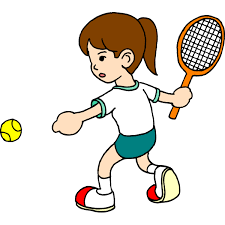Les nombres (numbers)
Los números de 0 a 50
|
| one (1) |
|
eleven (11) |
|
twenty one (21) |
|
thirty one (31) |
|
fourty one (41) |
|
| two (2) |
|
twelve (12) |
|
twenty two (22) |
|
thirty two (32) |
|
fourty two (42) |
|
| three (3) |
|
thirteen (13) |
|
twenty three (23) |
|
thirty three (33) |
|
fourty three (43) |
|
| four (4) |
|
fourteen (14) |
|
twenty four (24) |
|
thirty four (34) |
|
fourty four (44) |
|
| five (5) |
|
fifteen (15) |
|
twenty five (25) |
|
thirty five (35) |
|
fourty five (45) |
|
| six (6) |
|
sixteen (16) |
|
twenty six (26) |
|
thirty six (36) |
|
fourty six (46) |
|
| seven (7) |
|
seventeen (17) |
|
twenty seven (27) |
|
thirty seven (37) |
|
fourty seven (47) |
|
| eight (8) |
|
eighteen (18) |
|
twenty eight (28) |
|
thirty eight (38) |
|
fourty eight (48) |
|
| nine (9) |
|
nineteen (19) |
|
twenty nine (29) |
|
thirty nine (39) |
|
fourty nine (49) |
|
| ten (10) |
|
twenty (20) |
|
thirty (30) |
|
fourty (40) |
|
fifty (50) |
|
- 60 = sixty
- 70 = seventy
- 80 = eighty
- 90 = ninety
- 100 = one hundred
- 101 = one hundred and one
- 1000 = a thousand
- 0 = zero
- premier = first
- prochain = next
- dernier = last
 Si on jouait?
Si on jouait?
Un peu de grammaire "there is", "there are"
Pour dire Il y a en anglais, utilisez "There is" (singulier) ou "There are" (pluriel), par ex.: "There is a problem" = Il y a un problème; "There are three students in the classroom = Il y a trois étudiants dans la salle de classe.
Pour dire Il y avait, écrivez "There was", par ex.: "There was a jazz band at the party" = Il y avait un orchestre de jazz à la fête.